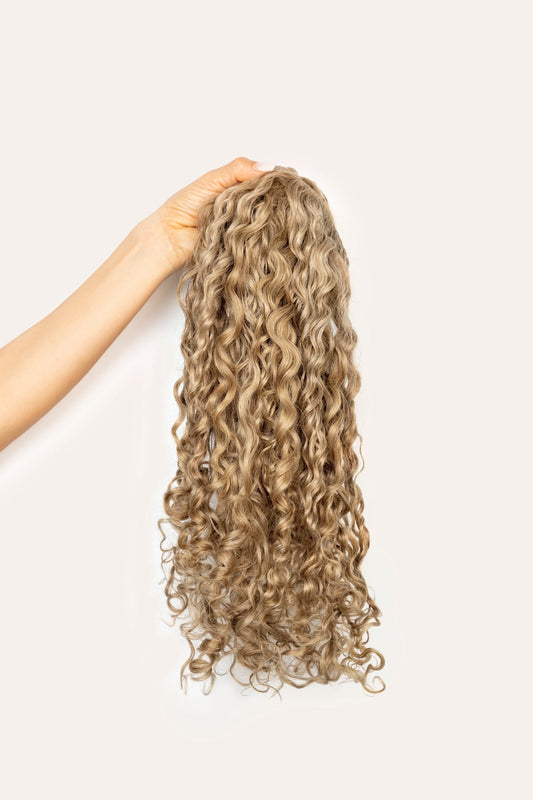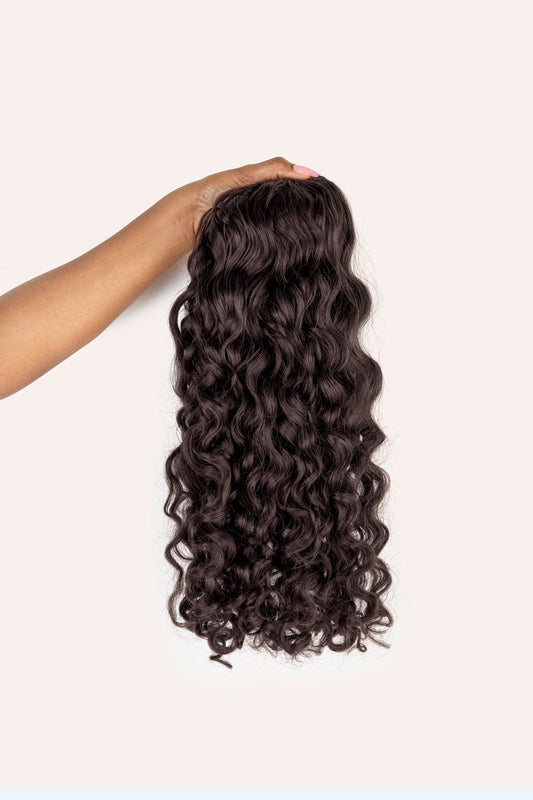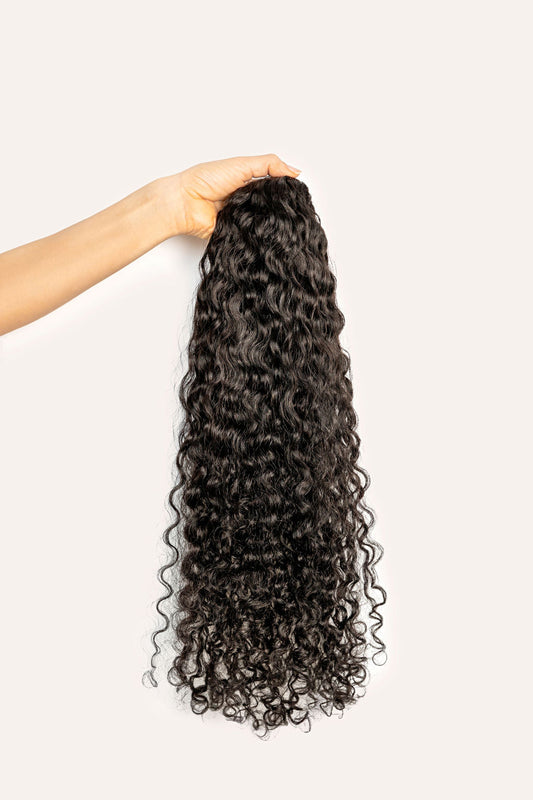
If you have curly hair, there’s a big chance that you’ve noticed your hair change with the seasons. With winter coming, modifications must be made to your routine to keep your hair healthy and moisturized.
Keep on reading to learn about curly winter hair and how you can keep it bouncy and full of life.
Preparing Curly Hair for Winter
Why You Need to Prepare Your Curly Hair for Winter
Unlike straight hair, curly hair is more vulnerable and sensitive. As a result, it is more likely to become dry, brittle, frizzy and damaged. Especially in the winter.
Cuticle structure and porosity are responsible for curly hair’s fragility.
Cuticles
Curly hair cuticles The cuticles (the outermost part of hair strands) are uneven in shape. This means that some areas are lifted higher than others, causing exposure of the internal structure of the shaft. As a result, curly strands are more easily damaged.
Porosity
Porosity relates to how much moisture hair is able to absorb and retain.
Hair porosity can be low, normal or high.
Low porosity means that your cuticle layers lay flat and repel moisture. This level of porosity will require some moisturizing since it doesn’t take in moisture well in the winter.
Normal porosity typically equates with the least amount of maintenance. This is because cuticles absorb enough moisture to stay hydrated while preventing too much from escaping.
High porosity means that your cuticles are very open. Because of this, they let out a lot of moisture. Hair with this level of porosity is highly prone to frizz. It is the most likely to lose moisture in the winter and become dry and brittle.
Curls are naturally higher in porosity than straight strands. This means will be more impacted by humidity and temperature changes.
How Climate Affects Curls
Climate has a huge effect on curly hair. You’ll notice that in the winter, curly hair is less frizzy.
Frizzy curls happen when strands don’t have enough moisture. Dry hair tries to suck any bit of moisture it can from the air and when it does, it swells and expands.
This is most common in warm, humid climates and during summer months.
In winter, hair is less likely to frizz due to the lack of moisture in the air. However, this will result in dry hair as there is no moisture to absorb.
In fact, dry air will take moisture away from your hair! As such, it is essential to keep tresses extra hydrated during colder months.
Not only does the weather affect frizz, so does the temperature in your home. For instance, your heater will strip moisture from the air… and your hair.
Seasonal changes in humidity and temperature will impact your skin the same way as they affect your hair. The lack of moisture in the air will cause your skin to become drier. As a result, it is important to update both your hair and skincare routines to lock in hydration!
How to Get Curls Winter-Ready
While you can’t control the weather, you can impact the havoc it wreaks on hair. Follow these winter hair care tips to lock in moisture and hydration:
- Wash your hair in lukewarm or cool water rather than hot water.
- Stay away from products that contain sulfates and alcohol.
- Get a humidifier!
- Wash hair less often.
- Deep-condition and use hair masks
- Ensure hair is dry before going out.
- Refrain from towel drying.

Even with our best efforts, sometimes winter just takes such a toll on hair.
If that happens and you find yourself with lackluster tresses and split ends, there’s one thing you can do to bring life back into you and your hair: GET CURLY HAIR EXTENSIONS!
The cold, dry air won’t stand a chance against voluminous and luscious Bebonia curly clip-in hair extensions. Every curly babe will be asking for your secret to your gorgeous winter locks.




1 comment
Thanks for the blog the transformation looks amazing. I usually focus on the right product for my short curly hair like leave-in cream and deep conditioner.